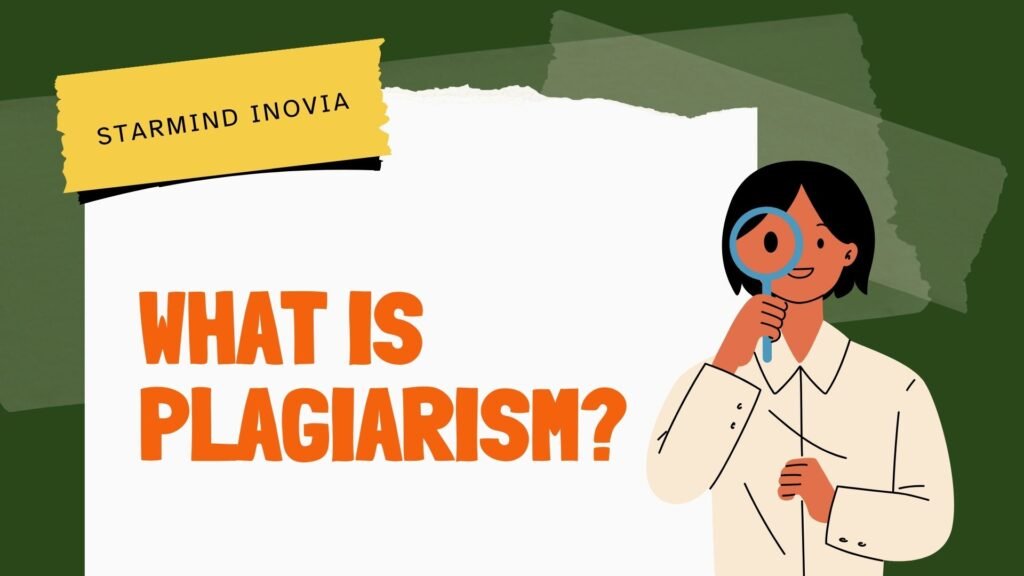Academic writing is the foundation of intellectual growth and innovation. However, plagiarism poses a significant threat to the integrity of academic work. At its core, plagiarism involves using someone else’s ideas or work without proper acknowledgment. This blog aims to explore the complexities of plagiarism in academic writing and offer practical solutions in simple ways to prevent it.
Defining Plagiarism
Plagiarism in academic writing basically forms an unethical violation of the rules of academic writing, where someone else’s findings and ideas are copied into some work, without proper consent and acknowledgment. Plagiarism isn’t limited to copying and pasting text from a source. It involves several unethical practices, including:

- Direct Plagiarism: Using another person’s exact words without credit.
- Self-Plagiarism: Reusing your previously submitted work without acknowledgment.
- Mosaic Plagiarism: Integrating phrases from different sources without proper citation.
- Unintentional Plagiarism: Improperly paraphrasing or failing to credit sources correctly.
In academia, plagiarism undermines the credibility of research and the author which leads to academic misconduct and mis-integrity. Institutions often enforce strict penalties to uphold academic integrity.
Threats and Consequences Posed by Plagiarism
Academic Consequences: Institutions are very serious and critical about their academic integrity and ethics. For this reason, they often penalize plagiarism with failing grades, suspension, or even expulsion. The damage to your academic record can be long-lasting and detrimental to your future opportunities.
Legal Issues: In cases involving copyrighted material, plagiarism can result in legal consequences and actions from the authors and institutions. This is because plagiarism is an ethically wrong and dishonest action. Original authors may seek legal redress if their work is used without permission or proper attribution. This can result in legal fees, fines, and further reputational damage.
Reputation Damage: A reputation for dishonesty can undermine trustworthiness and hinder the career prospects. Being caught plagiarizing can severely damage one’s reputation, making it challenging to build trust or pursue future academic and professional opportunities. For researchers, plagiarism can damage professional relationships and erode trust within the academic community.
Loss of Learning Opportunity: Plagiarism prevents students from fully engaging in the learning process, which is central to academic work. By copying others’ work, one misses out on the opportunity to engage deeply with the material, develop critical thinking skills, and contribute original insights into the learning process and development of knowledge.
Ethical Concerns: Beyond the practical repercussions, plagiarism raises serious ethical questions. It disregards the effort and creativity of original authors and compromises the ethical standards of academic and professional environments.
Causes of Plagiarism

Plagiarism leading to academic mis-integrity have several worse consequences for a student, researcher or learner. Several factors contribute to plagiarism, including:
- Lack of Awareness: Some students may not fully understand what constitutes plagiarism or how to cite sources properly.
- Poor Time Management: Last-minute work can tempt students to plagiarize to meet tight deadlines.
- Pressure to Succeed: The desire to achieve high grades may drive students to cut corners.
- Easy Access to Information: The internet provides vast resources, making it easy to copy content without proper citation.
Strategies to Prevent Plagiarism
Preventing plagiarism is crucial for maintaining and preserving integrity in academic writing. Here are some strategies to help you avoid it:

1. Gain Understanding About Plagiarism
The first step in avoiding plagiarism is understanding its various forms and the consequences it can lead too. Familiarize yourself with what constitutes plagiarism, including direct, mosaic, and self-plagiarism. Awareness is key to ensuring that you do not inadvertently commit plagiarism.
2. Proper Citation
One should always give credit to the original authors of any ideas, data, or text that is used during academic writing. Accurate citation is the most effective way to prevent plagiarism. Different academic disciplines use different citation styles (e.g., Harvard, APA, MLA, Chicago). It is crucial to understand and apply the correct style for your work. Always credit the original authors when quoting, paraphrasing, or summarizing their ideas.
3. Careful Paraphrasing
Paraphrasing is a skill that requires rephrasing the original ideas in your own words while preserving the original meaning. When paraphrasing, one must make sure to rewrite the ideas thoroughly in his/her own words and still provide proper attribution to the original source by use of correct form of citation.
4. Use Plagiarism Detection Software
The use of plagiarism detection software to for checking academic works and writings for unintentional plagiarism before submission. Utilizing plagiarism detection tools like Turnitin, Grammarly, and Copyscape can help identify unintentional plagiarism. These tools compare your work against a vast database to detect similarities, allowing you to make necessary revisions before submission.
5. Understand Assignment Requirements
Different assignments may have different expectations regarding the use of sources. Ensure you understand these requirements to avoid over-reliance on external materials and to focus on your own analysis and ideas. Next, different institutions and disciplines have varying standards for what constitutes plagiarism. One must therefore know the rules and guidelines applicable for their academic work before they work on an assignment.
6. Seek Assistance When Needed
If you’re unsure about how to cite a source or whether your paraphrasing is adequate, seek help from professors, academic advisors, or writing centers. They can provide guidance to ensure your work meets academic standards.
Promoting Academic Integrity

To effectively combat plagiarism, educational institutions must cultivate a culture of academic integrity by:
Providing Integrity Training: Offering workshops and training sessions on proper citation practices and academic integrity.
Encouraging Open Dialogue: Fostering discussions about the challenges of academic writing and providing support to students.
Implementing Clear Policies: Establishing and clearly communicating policies on plagiarism and its consequences to ensure students understand the importance of maintaining academic honesty.
Concluding Remarks
Plagiarism is a serious issue in academic writing, but it is one that can be avoided with the right knowledge, tools, and practices. By understanding what constitutes plagiarism and implementing strategies to avoid it, students and scholars can ensure that their work maintains the highest standards of academic integrity. Educational institutions also play a pivotal role in this effort by providing the necessary resources and support to foster a culture of honesty and originality in academia. In the end, academic writing is not just about fulfilling requirements or achieving good grades; it is about contributing original ideas to the ongoing conversation in your field. By avoiding plagiarism, one not only protect their own academic reputation but also uphold the values that are essential to the pursuit of knowledge.




